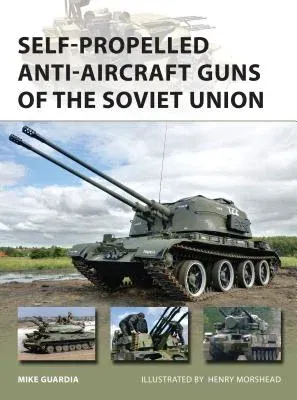Mike Guardia
(Author)Self-Propelled Anti-Aircraft Guns of the Soviet UnionPaperback, 19 May 2015

Temporarily out of stock
Free Delivery
Cash on Delivery
15 Days
Free Returns
Secure Checkout

Part of Series
New Vanguard
Print Length
48 pages
Language
English
Publisher
Osprey Publishing (UK)
Date Published
19 May 2015
ISBN-10
1472806220
ISBN-13
9781472806222
Description
Product Details
Author:
Book Format:
Paperback
Country of Origin:
CN
Date Published:
19 May 2015
Dimensions:
24.13 x
17.78 x
0.76 cm
Illustrator:
ISBN-10:
1472806220
ISBN-13:
9781472806222
Language:
English
Location:
New York
Pages:
48
Publisher:
Series:
Weight:
158.76 gm